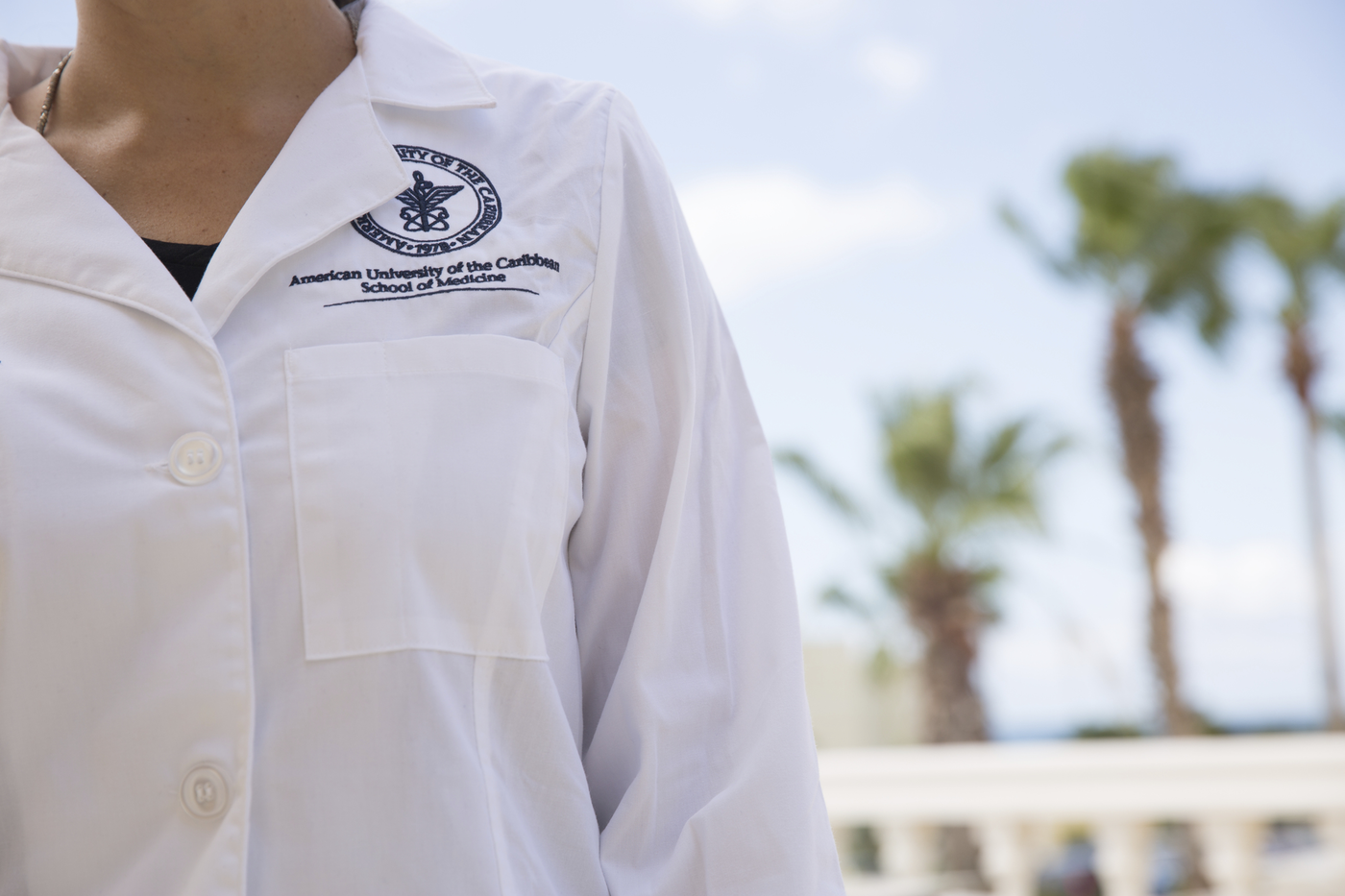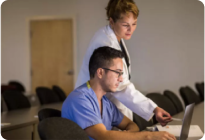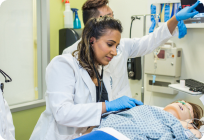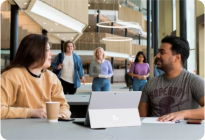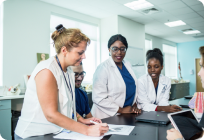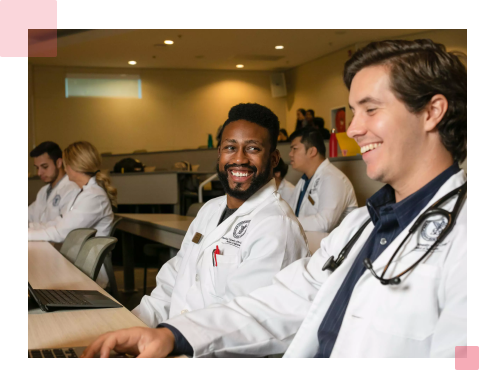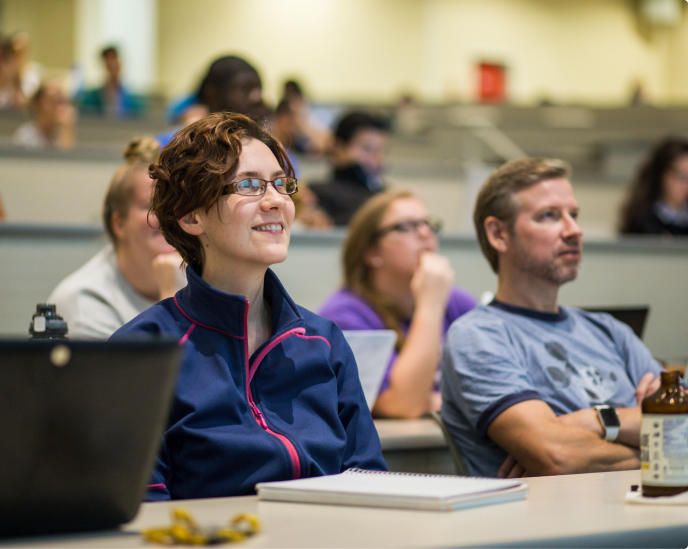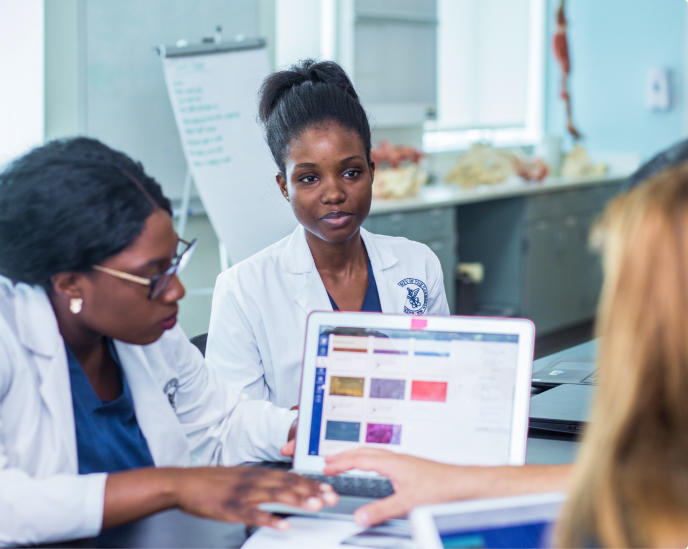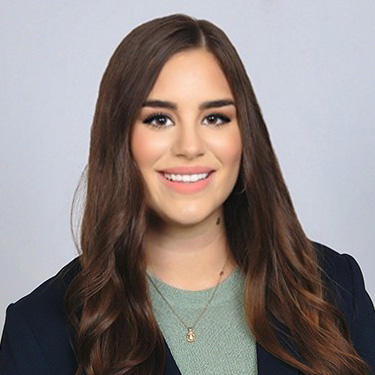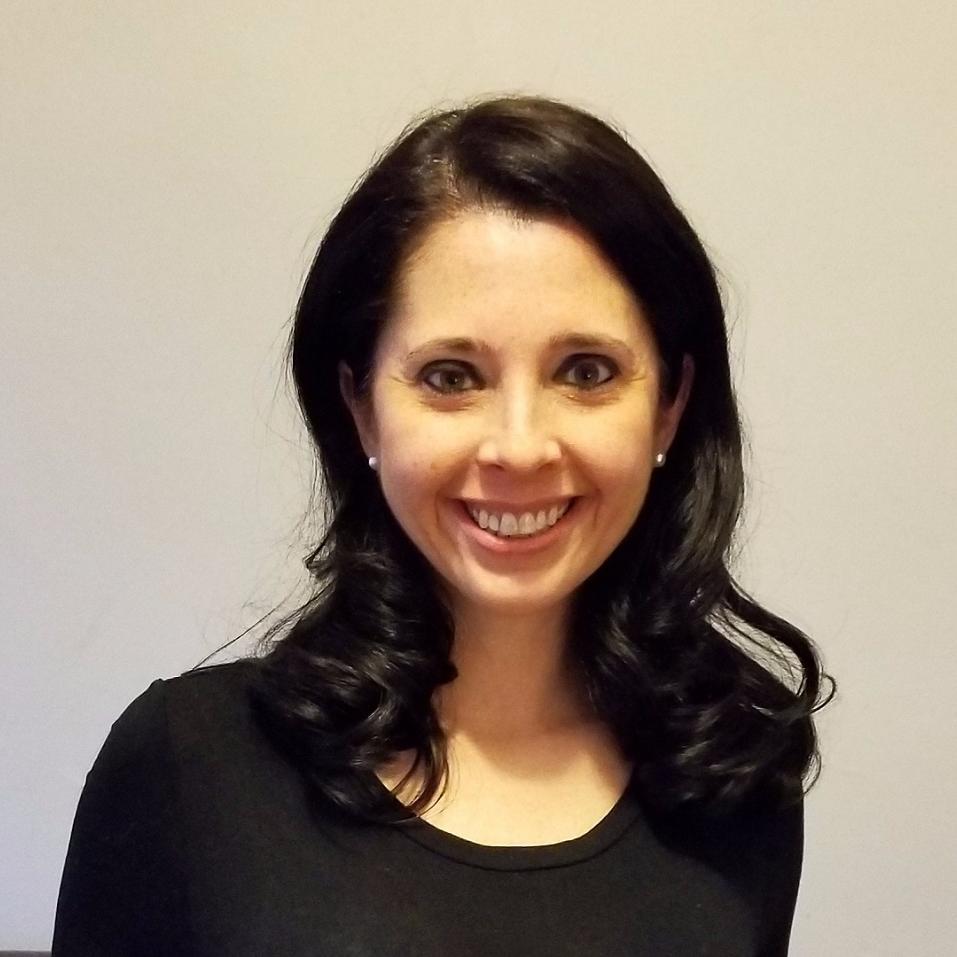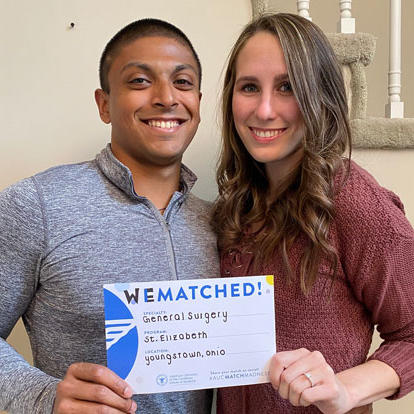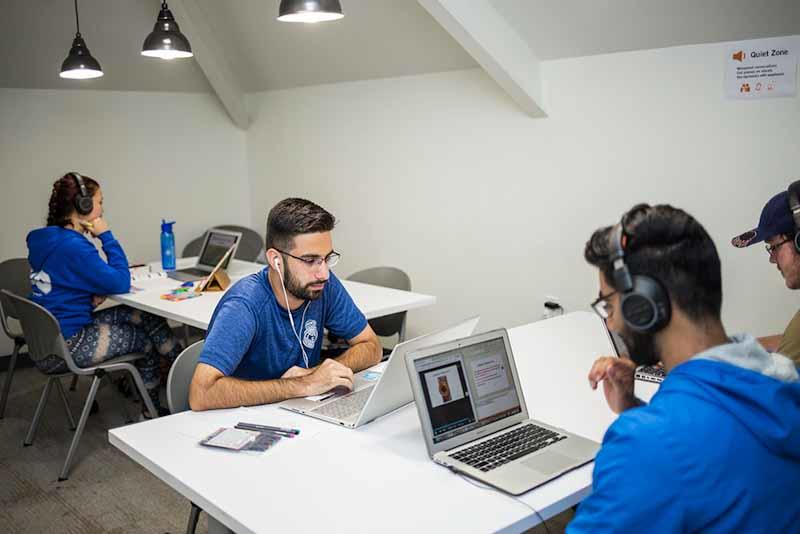AUC Clinical Rotations in the US and UK
During the clinical portion of AUC's medical program, students perform as active members of a team comprised of students, residents, and attending physicians.
Under supervision, clinical students take medical histories and give physicals, evaluate laboratory data, analyze information to diagnose patient cases, and undertake limited procedures.
Each clinical site is staffed by a program director, faculty members and a medical education coordinator who work together to facilitate the learning experience for AUC students. Additionally, AUC’s Office of Clinical Advising and Clerkships is available to assist students at any point during their clinical rotations.
*For students matriculating beginning in September 2019 or later
Students are advised to take four to eight weeks of electives in a primary field of interest. Four to six weeks of family practice is highly recommended, as this is a condition of licensure in many states. Additionally, it is recommended that each student take emergency medicine and neurology, as well as 18–22 weeks of electives in internal medicine subspecialties. See course description section for full listing of subspecialties.
In consultation with their Clinical Advisor in the Office of Clinical Advising and Clerkships, each student selects elective rotations in the US and UK from the list of approved practice areas found under Elective Rotations. Clinical Advisors and Physician Match Advisors (PMAs) will provide students with information on which specialties will be the most competitive.
Resources Available to Help AUC Students Prepare for the Match
Residency Workshops
Students gain an understanding of the different components of the residency application process.
Webinar Series
Students learn about best practices for writing personal statements, developing CVs, requesting letters of recommendation, and conducting residency program interviews.
Student and Professional Development
AUC's Office of Career Advisement (OCA), assists students who are preparing for residency, as well as numerous professional clubs.
Personal Advising
Residency advisers meet virtually in person at clinical sites to provide individualized guidance and match strategies.
Physician Match Advisers
Students are "matched" with an adviser who can coach him or her through the residency application process and provide specific counseling related to desired specialty or program.
Specialty Interest Groups
Students interested in a particular area of medicine meet routinely and host AUC graduates, faculty and deans who made a career in that field to provide unique perspectives.
“I got a fantastic education at AUC. The professors were amazing. Some of the alumni who had some time before starting residency would come back as fellows and teach clinical courses, and they were a wealth of knowledge. Whether upper classmen or alumni, everyone from AUC is so willing to help you and give advice.”
Alexandra Arnold
Graduate, 2022
“The education I received opened many doors and gave me the opportunity to follow my dream of becoming a physician.”
Nicole Deptula
Graduate, 2009
“I loved the small class sizes. It’s such a supportive environment at AUC. The professors are wonderful, and the friendships you make really enhance your experience and allow you to make the most of it, even when you’re studying for a majority of the day.”
Taylor Abraham
Graduate, 2020


